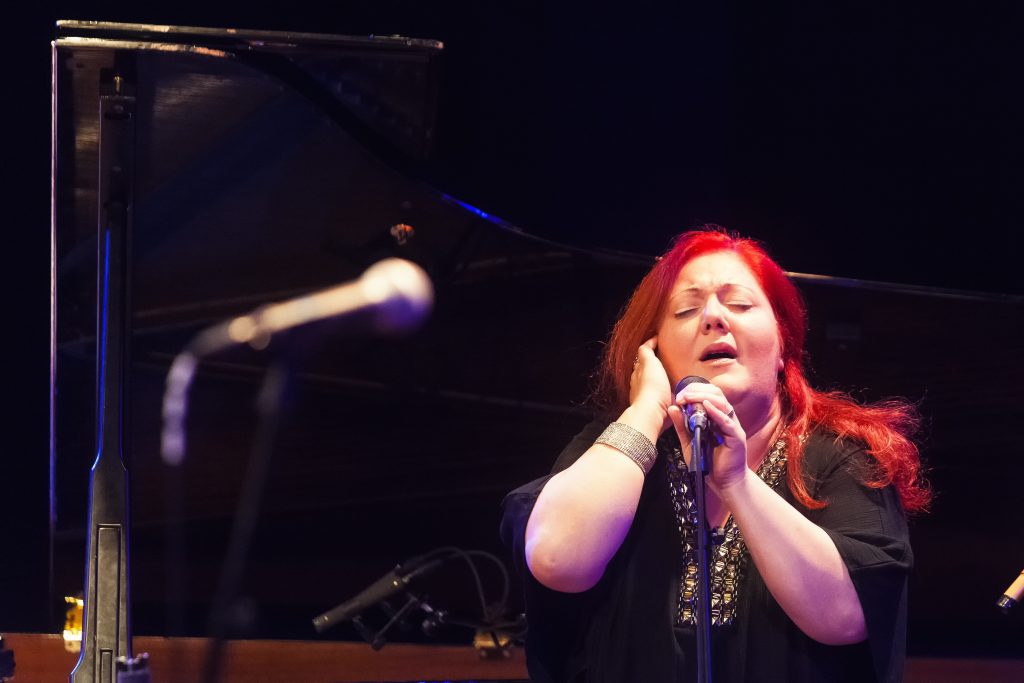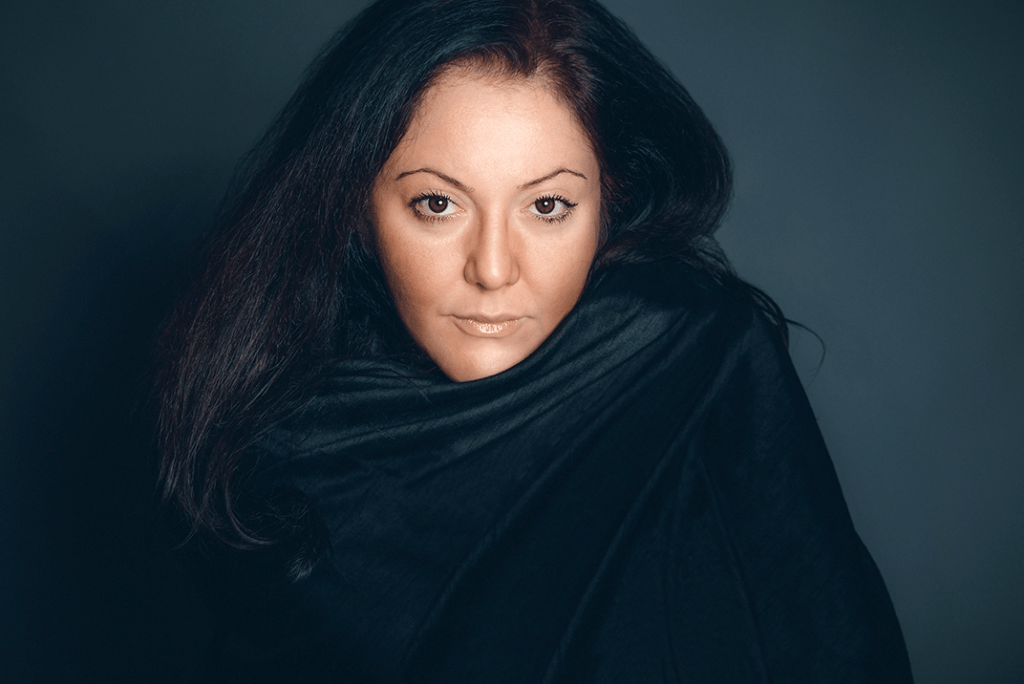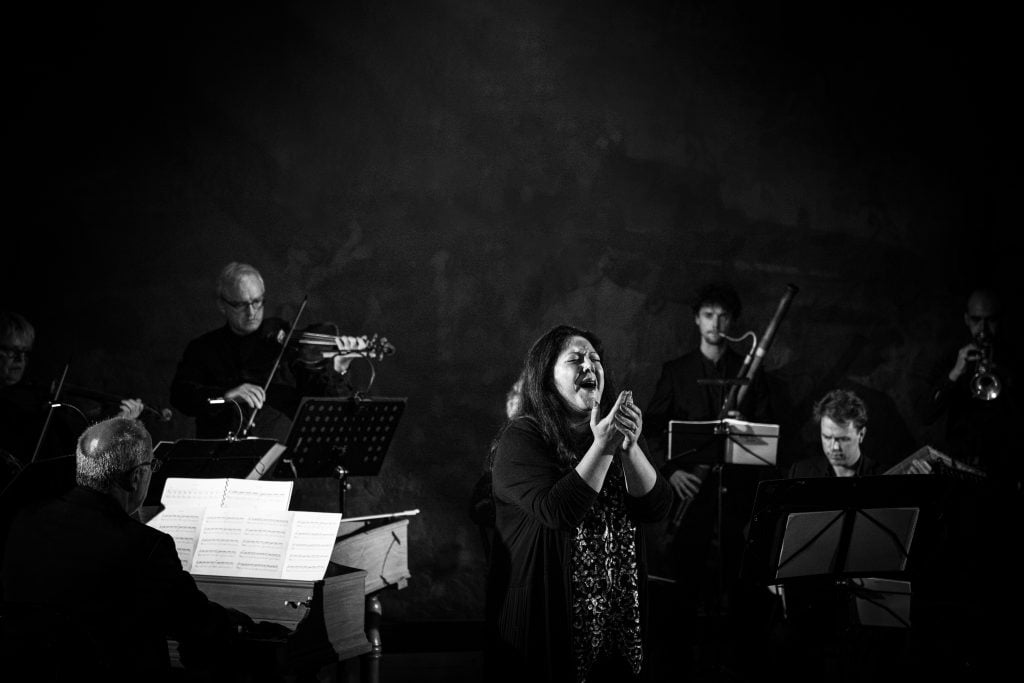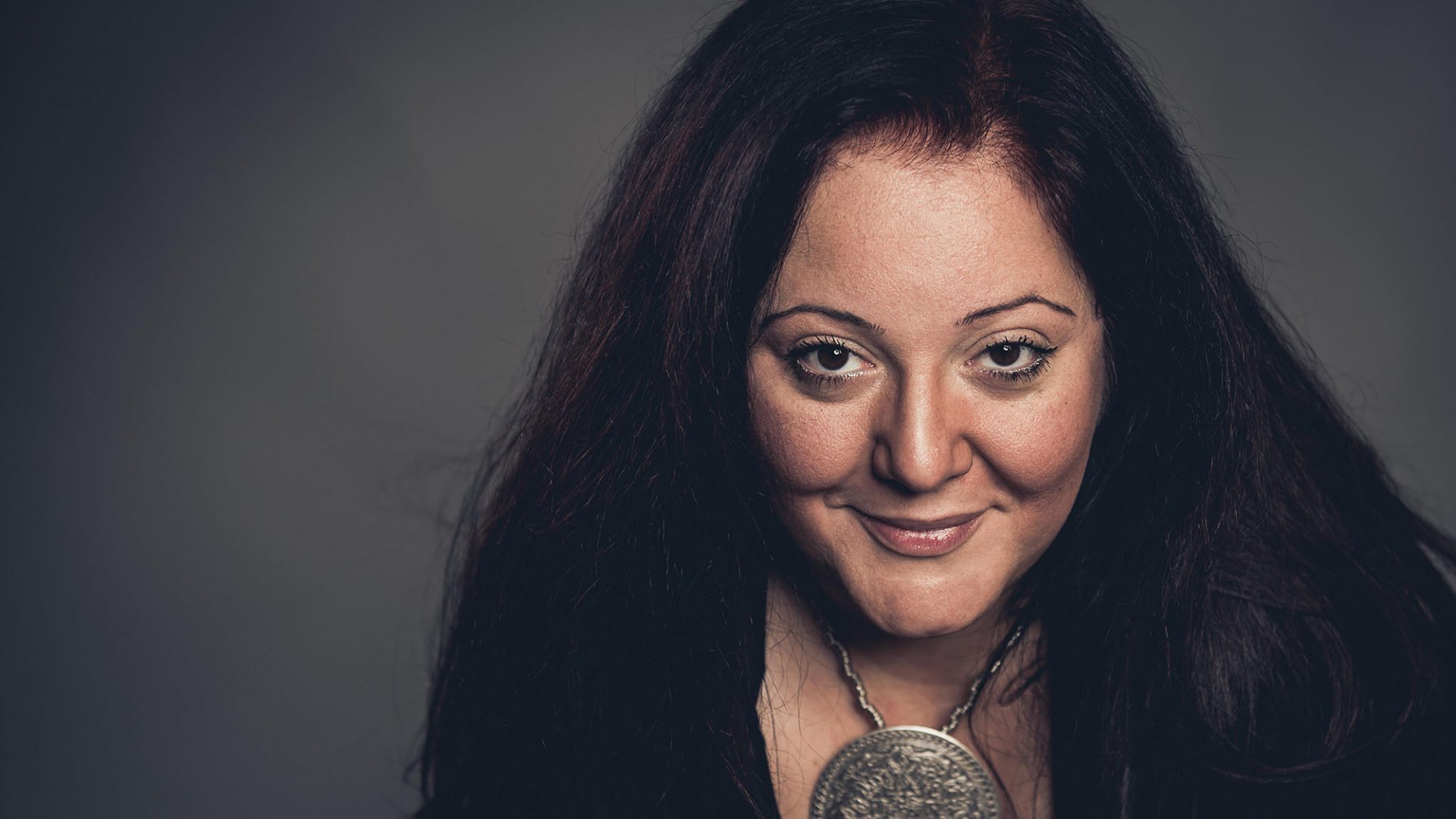Published: March 2022
More than two years after releasing her album, Lullabies for Troubled Times, Qisetna catches up with Dima to talk about her art in a time of uncertainty.
Interviewed by: Vedika Mandapati
You’ve previously expressed that performance is your true passion. Walk us through what it feels like to sing for an audience.
Being on stage is actually the best state of mind for me—I love it. Of course, composing is also my passion and has been for a long time—but for me, being on stage and getting in contact with people allows you to receive a certain power or energy from the audience. It’s really very special to perform when there are a lot of audience members, or even a small number, because connecting with people always has a charm for me. The most amazing part of the whole experience is when you sing your heart out and you are being completely honest—and if I may say, emotional naked—in front of people. Seeing their facial reactions and how they connect with you and your music is indescribable. This is very rewarding for me as an artist. I can really get through to them and help extract these emotions and memories from their own experiences.

Apart from your strengths as a vocalist, you also have a clarinet degree. Can you talk about whether you think viewing musicality through an instrumentalist’s lens has shaped your vocal performances?
Now, speaking of the clarinet and all the breathing abilities that you get after being a clarinetist, it helped a lot actually. Especially because I didn’t have the intention of being a singer at all in my life. It came completely out of nowhere. And this is where I’ve ended up now! It definitely helped a lot in shaping my singing and performance career. This link between being an instrumentalist and being a vocalist is very much connected. Firstly, in my point of view all singers should also be musicians. They should really be aware of how to prepare, read the score and how to make sense of all the lines. They should be musical. To be able to really produce good singing, in my opinion, it’s not about having a good vocal box. It’s about what is happening in your head. Sometimes there are singers who don’t really have these huge abilities, physically, but they have very touching performances and that is what’s important to me. Being more educated and more informed about music and your art is definitely very important.
You’ll be performing soon at the Syrian Arts Festival in London. Tell us more about what you hope to present there and what it feels like to be part of a community of artists celebrating your Syrian heritage?
Yes, I’m bringing with me my latest album that I recorded the year before the pandemic. So, I actually didn’t have the chance to perform it as much as I’d hoped. The project is called Lullabies for Troubled Times, which is basically a collection of lullabies from Syria and from different parts of the world. I discovered this collection of very interesting and unknown lullabies before recording the album and I thought, where are these songs today, why don’t people know about them? So, I thought it would be really good to bring these traditions back, so that people can hear them once again. It’s very unique and very special. And that’s how the whole idea of the album came about.
I’m coming to London with this project and I hope it will touch people’s hearts, because it has a lot more behind it than just performing lullabies. This project is very dear to me as I’ve had a very special experience as a mother. My son is autistic and the pandemic hasn’t been the easiest for him. The album actually brings this idea of lullabies that aren’t actually about the kids, they’re about the suffering of the mothers. All the texts are really very complicated, deep and dark. I also worked with some amazing musicians to put together this album. They are all super, super masterful in what they do. So I’m really very honoured, glad and grateful to have them involved in this project.

You’ve had multiple other collaborative projects over your career, like your work on Yo-Yo Ma’s Grammy-winning album, Sing Me Home. What did it feel like to be representative of the Syrian arts in a global display of artistic solidarity?
It was absolutely very special for me to be featured in this album, because Silk Road and Yo-Yo Ma are very established world stars and musicians. I believe it’s not where you are coming from that makes you chosen to be a part of an album. I, of course, am very much connected with my roots. It’s very obvious in my music that there is this strong connection with Syria, with my environment, with my family, with the customs of the country and the beautiful mixtures of culture in my area. But I believe actually, what brings all these people together in this project is that they just want to communicate, which is something that we lack these days, on too many levels. When I meet somebody I don’t really have the urge to ask them, ‘where are you from?’. I am more interested in what they think and how they see life or how they approach others. This is actually what matters the most in this project, or in any other project that I love to be involved in. What you can really present on all levels—emotionally, humanly, musically. You just need to find a way to communicate with people in the right way.
Having performed all around the world and lived in so many countries, would you say you have one key artistic influence?
Well, every step of my life has taught me a lot and I’m still learning, because every time you meet new musicians, you meet new styles and find yourself in front of something completely new that you can always learn from. So, of course my life in Syria gave me the basics, the background, the colours and the spices. My short life in Holland, where I also studied for a while, gave me a different perspective. The huge shift was when I first came to the US. When I first came here to study, it was very overwhelming—the amount of information I was exposed to musically was huge! I really learned a lot in those years. Of course, when performing with different people in the world, everyone brings their own philosophy, skills and colours to my life. I’ve always wanted to challenge myself—to keep myself growing.

Finally Dima, for all the musicians reading this, can you share what keeps you connected to your artistry in difficult times?
During the pandemic, not being able to communicate through your art and not being able to earn money was a big disaster for all artists. So, I must confess it was not a nice time for me, especially with my special circumstances here at home. I think I took a step back from my artistry actually, because for me performing online didn’t really make sense. I would miss having the real experience of an audience too much—virtual audiences for me would be like eating without being able to taste anything. What I did was I preserved my energies to focus on myself and my family; and that is really important as well. Finally, with everything going on, I remember that my music is about honesty. That is what keeps my music grounded; and so it is easy to stay connected to it because my music is a healing experience for me.



